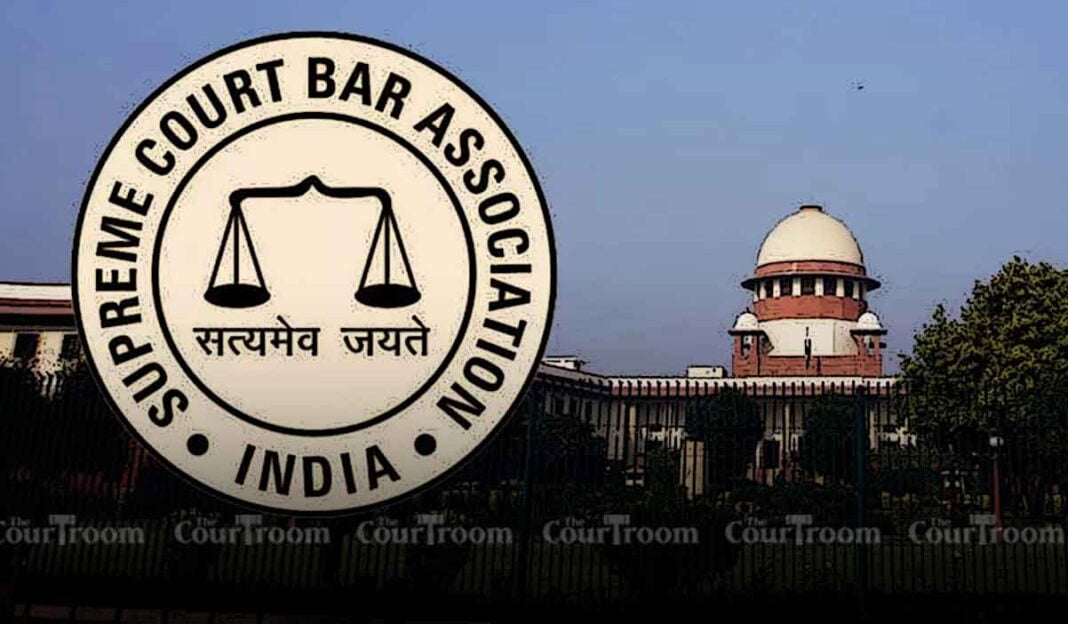The Supreme Court Bar Association (SCBA) and the Supreme Court Advocates-on-Record Association (SCAORA) have recently called for limitations on the entry of law interns into the Supreme Court premises due to concerns over overcrowding
The SCBA issued a notification detailing these restrictions, citing issues caused by the high volume of interns on the court grounds.
According to a notification issued by SCBA Secretary Vikrant Yadav, the introduction of an online pass system has led to an increase in the number of interns visiting the Supreme Court. “Interns frequently occupy libraries, canteens, corridors, and other areas, which has resulted in overcrowding,” the notification stated.
The SCBA has highlighted that this overcrowding problem has resulted in insufficient seating for its members. Consequently, the notification calls for urgent action to address this issue by restricting interns’ access to the Supreme Court’s High Security Zone.
The SCBA notice further explains, “Given the extension of the online facility by the Supreme Court, physical attendance of interns should be limited. Therefore, you are requested to instruct the concerned department to restrict the entry of interns into the Supreme Court Compound.”
Similarly, SCAORA has also expressed concerns about the impact of intern presence. In a letter to the Secretary General of the Supreme Court, SCAORA Secretary Nikhil Jain noted that the high number of interns has led to problems in the use of facilities. “Rather than benefiting from their visit as an educational experience, many interns occupy libraries, canteens, and gather in corridors, making it difficult for bar members to access these areas or even move freely due to the constrained space,” the letter stated.
SCAORA has proposed several measures to mitigate the issue of overcrowding:
1. Limitation on Intern Numbers: Only one intern per Advocate on Record should be allowed entry to the Supreme Court premises each day.
2. Restricted Entry on Specific Days: The entry of interns should be completely restricted on Wednesdays and Thursdays after lunch.
3. Designated Intern Areas: To manage space effectively, a designated room or area should be allocated where interns can store their belongings, work on research, or have their lunch, thus preventing them from using libraries, cafeterias, and bar rooms.
These proposals aim to ensure that the use of Supreme Court facilities remains efficient and that adequate space is available for both interns and court members.
(With inputs from agency)
Share your news, articles, deals, columns, or press releases with us! Click the link to submit and join our platform today.


